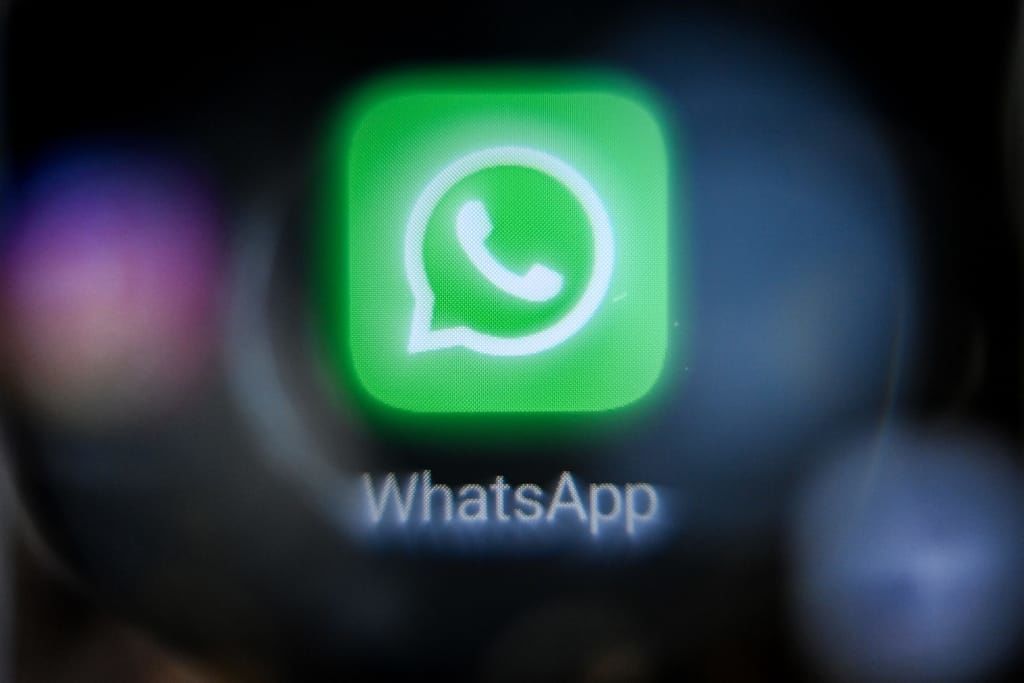
Europe turns on TikTok
In the United States, TikTok is a favorite punching bag for lawmakers who've compared the Chinese-owned app to "digital fentanyl" and say it should be banned.
Now that hostility is spreading to Europe, where fears about children's safety and reports that TikTok spied on journalists using their IP locations are fueling a backlash against the video-sharing app used by more than 250 million Europeans.
As TikTok Chief Executive Shou Zi Chew heads to Brussels on Tuesday to meet with top digital policymaker Margrethe Vestager amid a wider reappraisal of EU ties with China, his company faces a slew of legal, regulatory and security challenges in the bloc — as well as a rising din of public criticism.
One of the loudest critics is French President Emmanuel Macron, who has called TikTok "deceptively innocent" and a cause of "real addiction" among users, as well as a source of Russian disinformation. Such comments have gone hand-in-hand with aggressive media coverage in France, including Le Parisien daily's December 29 front page calling TikTok "A real danger for the brains of our children."
New restrictions may be in order. During a trip to the United States in November, Macron told a group of American investors and French tech CEOs that he wanted to regulate TikTok, according to two people in the room. TikTok denies it is harmful and says it has measures to protect kids on the app.
While it wasn't clear what rules Macron was referring to — his office declined to comment — the remarks added to a darkening tableau for TikTok. In addition to two EU-wide privacy probes that are set to wrap up in coming months, TikTok has to contend with extensive new requirements on content moderation under the bloc's new digital rulebook, the DSA, from mid-2023 — as well as the possibility of being caught up in the bloc's new digital competition rulebook, the Digital Markets Act.
In answers to emailed questions, France's digital minister Jean-Noel Barrot said that France would rely on the DSA and DMA to regulate TikTok at an EU level, though he "remained vigilant on these ever-evolving models" of ad-supported social media. Barrot added that he "never failed to maintain a level of pressure appropriate to the stakes of the DSA" in meetings with TikTok executives.
Ahead of Chew's visit to Brussels, Thierry Breton, the bloc's internal market commissioner, warned him about the need to "respect the integrality of our rules," according to comments the commissioner made in Spain, reported by Reuters. A spokesperson for Vestager said she aimed to "review how the company was preparing for complying with its (possible) obligations under our regulation."
That said, the probes TikTok is facing deal with suspected violations that have already taken place. If Ireland's data regulator, which leads investigations on behalf of other EU states, finds that TikTok has broken the bloc's privacy rulebook, the General Data Protection Regulation, fines could amount to up to 4 percent of the firm's global turnover. Penalties can be even higher under the DSA, which starts applying to big platforms in mid-2023.
Spying fears
And yet, having to fork over a few million euros could be the least of TikTok's troubles in Europe, as some lawmakers here are following their U.S. peers to call for much tougher restrictions on the app amid fears that data from TikTok will be used for spying.
TikTok is under investigation for sending data on EU users to China — one of two probes being led by Ireland. Reports that TikTok employees in China used TikTok data to track the movements of two Western journalists only intensified spying fears, especially in privacy-conscious Germany. (TikTok acknowledged the incident and fired four employees over what they said was unauthorized access to user data.)
 One of the loudest critics is French President Emmanuel Macron, who has
called TikTok "deceptively innocent" and a cause of "real addiction"
among users
One of the loudest critics is French President Emmanuel Macron, who has
called TikTok "deceptively innocent" and a cause of "real addiction"
among users
Citing a "lack of data security and data protection" as well as data transfers to China, the digital policy spokesman for Germany's Social Democratic Party group in the Bundestag said that the U.S. ban on TikTok for federal employees' phones was "understandable."
"I think it makes sense to also critically examine applications such as TikTok and, if necessary, to take measures. I would therefore advise civil servants, but also every citizen, not to install untrustworthy services and apps on their smartphones," Jens Zimmermann added.
Maximilian Funke-Kaiser, digital policy spokesman for the liberal FDP group in German parliament, went even further raising the prospect of a full ban on use of TikTok on government phones. "In view of the privacy and security risks posed by the app and the app's far-reaching access rights, I consider the ban on TikTok on the work phones of U.S. government officials to be appropriate. Corresponding steps should also be examined in Germany."
For Moritz Körner, a centrist lawmaker in European Parliament, the potential risks linked to TikTok are far greater than with Twitter due to the former's larger user base — at least five times as many users as Twitter in Europe — and the fact that up to a third of its users are aged 13-19.
"The China-app TikTok should be under the special surveillance of the European authorities," he wrote in an email. "The fight between autocratic and democratic systems will also be fought via digital platforms. Europe has to wake up."
In Switzerland, lawmakers called earlier this month for a ban on officials' phones.
Call for a ban
So far, though, no European government or public body has followed the U.S. in banning TikTok usage on officials' phones. In response to questions from POLITICO, a spokesperson for the European Commission — which previously advised its employees against using Meta's WhatsApp — wrote that any restriction on TikTok usage for EU civil servants would "require a political decision and will be based on the careful assessment of data protection cybersecurity concerns, and others."
The spokesperson also pointed out that "there are no official Commission accounts" on TikTok.
A spokesperson for the European Parliament said its services "continuously monitor" for cybersecurity issues, but that "due to the nature of security matters, we don't comment further on specific platforms."
POLITICO reached out to cybersecurity agencies for the EU, the U.K. and Germany to ask if they had or were planning any restrictions or recommendations having to do with TikTok. None flagged any specific restrictions, which doesn't mean there aren't any. In Germany, for example, officials who use iPhones can’t use or download TikTok in the section of their phone where confidential data can be accessed.
 The European Commission has previously advised its employees against using Meta's WhatsApp
The European Commission has previously advised its employees against using Meta's WhatsApp
For Hamburg's data protection agency, one of 16 in Germany's federal system, restricting TikTok on official phones would be a good idea.
"Based on what we know from the available sources, we share, among other things, the concerns of the U.S. government that you mentioned and would therefore welcome it appropriate for government agencies in the EU to refrain from using TikTok," a spokesperson said.
This suggests that the most immediate public threat for TikTok in Europe is privacy-related. Of the two probes being conducted by Ireland's privacy regulator, the one looking into child safety on the app is the closest to wrapping up, according to a spokesperson for the Irish Data Protection Commission.
Depending on the outcome of discussions between EU privacy regulators — the child safety probe is likely to trigger a dispute resolution mechanism — TikTok could face new requirements to verify age in the EU. The other probe, looking into TikTok's transfers of data to China, is likely to wrap up around mid-year or toward the end of 2023 if a dispute is triggered, the spokesperson said.











